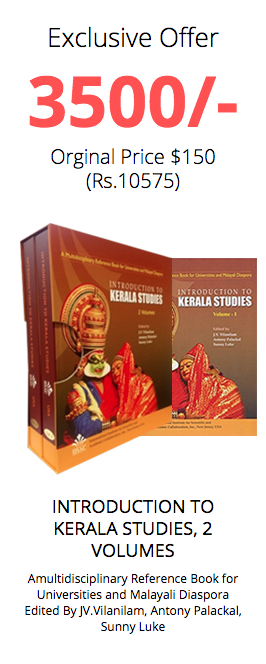
Myeloproliferative Disorders
12,990.00₹ 5,990.00₹
a superb summary of the topic, is a modern synthesis of Dameshek’s adventurous thinking. … Myeloproliferative Disorders is an important contribution to hematology. It arrives at a time when the study and treatment of these important diseases is at a crossroads, a time when hematologists everywhere have come to expect that the next great leap forward will come soon. For me, this book will sit on the shelf next to the first edition of Dameshek’s Leukemia. …” (Robert Schwartz, New England Journal of Medicine, 356/ 24, June 2007)
“First identified and named by William Dameshek in 1951, myeloproliferative disorders have become ‘landmarks in the history of malignant disease … on which progress in understanding and treating other malignancies … and indeed solid tumors can be based.’ … it ‘should be of interest to medical students who find the specialty of hematology truly fascinating.’ For other physicians and for patients, this reference provides a needed understanding of avant-garde medical research.” (William H. Wehrmacher, JAMA, Vol. 298, 2007)

Control of Cell Fate in the Circulatory and Ventilatory Systems
12,900.00₹ 5,690.00₹
The volumes in this authoritative series present a multidisciplinary approach to modeling and simulation of flows in the cardiovascular and ventilatory systems, especially multiscale modeling and coupled simulations. The cardiovascular and respiratory systems are tightly coupled, as their primary function is to supply oxygen to and remove carbon dioxide from the body’s cells. Because physiological conduits have deformable and reactive walls, macroscopic flow behavior and prediction must be coupled to nano- and microscopic events in a corrector scheme of regulated mechanisms. Therefore, investigation of flows of blood and air in physiological conduits requires an understanding of the biology, chemistry, and physics of these systems together with the mathematical tools to describe their functioning.
Volumes 1 and 2 are devoted to cell organization and fate, as well as activities that are autoregulated and/or controlled by the cell environment. Volume 1 examined cellular features that allow adaptation to environmental conditions. Volume 2 begins with a survey of the cell types of the nervous and endocrine systems involved in the regulation of the vasculature and respiratory tract and growth factors. It then describes major cell events in the circulatory and ventilatory systems, such as cell growth, proliferation, migration, and death. Circadian cycles that drive rhythmic gene transcription are also covered.

Handbook of Breast MRI
7,070.00₹ 4,790.00₹
Breast MRI is no longer the domain of specialised centres; it is now a mainstream diagnostic technique, and an understanding of its applications is essential for any clinician involved with breast imaging. The Handbook of Breast MRI provides core knowledge and clinical guidelines for performing breast MRI in everyday practice. Introductory chapters on breast MRI basics, anatomy and pathology are followed by detailed chapters on the use of MRI in screening, staging, problem-solving and MRI-guided interventions, each containing diagnostic algorithms, tables and lists for quick access to key diagnostic information. Each chapter also contains a selection of self testing questions, and numerous Appendices concisely summarise tumour classification and current breast cancer treatment options. The Handbook of Breast MRI is an invaluable practical diagnostic resource for radiologists, surgeons, oncologists and all clinicians involved in breast cancer management.

Gynaecological Oncology
5,900.00₹ 1,995.00₹
Providing a thorough and up-to-date overview of the full range of gynaecological cancers, Gynaecological Oncology is a concise introduction, particularly useful for trainees working towards postgraduate examinations. The first section includes introductory chapters on epidemiology, screening and prevention, imaging, pathology, surgery, radiation therapy, chemotherapy, and palliation. The second part of the book covers the gynaecological cancer types in turn; each chapter following a similar format looking at clinical issues, staging, and principles of management. Where appropriate, flow-charts and diagrams are used to help the reader assimilate complex information. A chapter is devoted to decision-making, addressing those issues clinicians and women face when deciding on optimal management in given clinical scenarios. The book is practically based and is enhanced by highlighting learning points, management algorithms and clinical images. This is an invaluable resource for all doctors and allied health professionals dealing with women with gynaecological cancers.
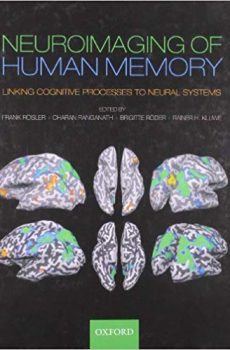
Neuroimaging in Human Memory
10,900.00₹ 3,995.00₹
In the past 20 years, neuroimaging has provided us with a wealth of data regarding human memory. However, to what extent can neuroimaging constrain, support or falsify psychological theories of memory? To what degree is research on the biological bases of memory actually guided by psychological theory?
In looking at the close interaction between neuroimaging research and psychological theories of human memory, this book presents a state-of-the-art exploration of imaging research on human memory, along with accounts of the significance of these findings with regard to fundamental psychological questions. The book starts with a summary of some of the conceptual problems we face in understanding neuroimaging data. It then looks at the four areas of human memory research that have been most intensively studied with modern brain imaging tools – Learning and consolidation, Working memory control processes and storage, Long-term memory representations, and Retrieval control processes. Throughout, the book shows how brain imaging methods, such as functional magnetic resonance imaging (fMRI) and electroencephalography (EEG), can help us increase our knowledge of how human memory is organized, how memory representations are stored, consolidated and retrieved, and how access to memory contents is controlled. With all chapters written by leading researchers in the field, the book will be essential for all those interested in the psychology and neuroscience of memory.
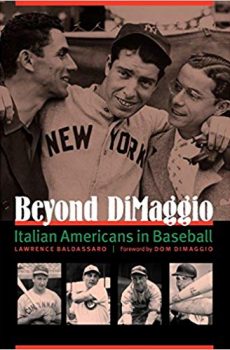
Beyond DiMaggio
1,690.00₹ 1,190.00₹
Berra, Rizzuto, Lasorda, Torre, Conigliaro, Santo, Piazza. Casual baseball fans—in fact, even many nonfans—know these names, not as Italian Americans but as some of the most colorful figures in Major League Baseball. Ever since future Hall of Famer Tony Lazzeri became a key part of the Yankees’ Murderers’ Row lineup of 1926, Italian Americans have been among the most prominent and intriguing players in the game. The first comprehensive study of the topic, Beyond DiMaggio is also a social history of baseball, tracing the evolution of American perceptions toward those of Italian descent as it chronicles the baseball exploits that influenced those perceptions.

Searching for Tamsen Donner
Tamsen Donner. For most the name conjures the ill-fated Donner party trapped in the snows of the Sierra Nevada Mountains in 1846–47. Others might know Tamsen as the stoic pioneer woman who saw her children to safety but stayed with her dying husband at the cost of her own life. For Gabrielle Burton, Tamsen’s story, fascinating in its own right, had long seemed something more: the story of a woman’s life writ large, one whose impossible balancing of self, motherhood, and marriage spoke to Burton’s own experience.
This book tells of Burton’s search to solve the mystery of Tamsen Donner for herself. A graceful mingling of history and memoir, Searching for Tamsen Donner follows Burton and her husband, with their five daughters, on her journey along Tamsen’s path. From Tamsen’s birthplace in Massachusetts to North Carolina, where she lost her first family in the space of three months; to Illinois, where she married George Donner; and finally to the fateful Oregon Trail, Burton recovers one woman’s compelling history through a modern-day family’s adventures into realms of ultimately timeless experiences. Here Burton has also, for the first time, collected and published together all seventeen of Tamsen’s known letters.

Making Good
1,950.00₹ 890.00₹
Tony Allan is a rare breed – a masterful chef as well as a great businessman. He is second only to Sir Terence Conran as Britain’s wealthiest restaurateur and enjoys celebrity status following his primetime BBC cookery show Tony & Giorgio, with best pal Giorgio Locatelli.
Packed with entertaining anecdotes, his inspiring biography and business manual, Making Good, gives a real insight into one of the few remaining characters on the UK’s restaurant scene and a template for aspiring entrepreneurs who want to know how it could – but perhaps shouldn’t – be done. Making Good is the fly-on-the-kitchen-wall cookumentary of exactly what Tony Allan did and why he did it the way he did. It is essential reading for wannabe millionaires from all walks of life, including anyone who has ever dreamt of running their own business or opening a successful restaurant. Making Good will inspire anyone hungry for a genuine rags-to-riches story.
‘I call Tony my English brother. He is the man who introduced me to English culture and we have had some wonderful times together. Launching Bank restaurant was a fantastic experience, one I will always remember, so this book is very special.’ Christian Delteil, Managing Director of Bank Restaurants

Public Private Partnerships in Ireland
6,900.00₹ 3,499.00₹
Public Private Partnerships (PPPs) have come to public attention in recent years in Ireland with the impact of toll roads, the collapse of social-housing projects and their use in the provision of courts buildings, schools, water/waste water treatment plants, hospitals, light rail and other public infrastructure and services. This book provides a ground breaking and unique analysis of the development of such PPPs internationally, with a detailed focus on the rationale behind their introduction and outcomes in Ireland. The detailed evidence outlined from the author’s extensive research (including interviews with senior central and government officials, private sector, community and trade union representatives and the Irish Minister for Environment) highlights the important role PPPs are playing in the implementation of privatisation and neoliberalism. The book also provides considerable practical lessons from individual PPP projects. It is therefore an essential read for students, academics of politics, economics, sociology, geography and policy practitioners in Ireland, and further afield. It is of considerable interest to anyone concerned with the progress of Irish society, its economy and, indeed public services and governance internationally. — .
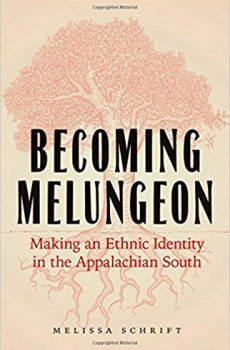
Becoming Melungeon
2,450.00₹ 1,650.00₹
Appalachian legend describes a mysterious, multiethnic population of exotic, dark-skinned rogues called Melungeons who rejected the outside world and lived in the remote, rugged mountains in the farthest corner of northeast Tennessee. The allegedly unknown origins of these Melungeons are part of what drove this legend and generated myriad exotic origin theories. Though nobody self-identified as Melungeon before the 1960s, by the 1990s “Melungeonness” had become a full-fledged cultural phenomenon, resulting in a zealous online community and annual meetings where self-identified Melungeons gathered to discuss shared genealogy and history. Although today Melungeons are commonly identified as the descendants of underclass whites, freed African Americans, and Native Americans, this ethnic identity is still largely a social construction based on local tradition, myth, and media.
In Becoming Melungeon, Melissa Schrift examines the ways in which the Melungeon ethnic identity has been socially constructed over time by various regional and national media, plays, and other forms of popular culture. Schrift explores how the social construction of this legend evolved into a fervent movement of a self-identified ethnicity in the 1990s. This illuminating and insightful work examines the shifting social constructions of race, ethnicity, and identity both in the local context of the Melungeons and more broadly in an attempt to understand the formation of ethnic groups and identity in the modern world.

Organic Chemistry
9,990.00₹ 2,999.00₹
Succeed in your course with the help of this proven best-seller! John McMurry’s ORGANIC CHEMISTRY is consistently praised as the most clearly written book available for the course. In John McMurry’s words: “I wrote this book because I love writing. I get great pleasure and satisfaction from taking a complicated subject, turning it around until I see it clearly from a new angle, and then explaining it in simple words.” Through his lucid writing and ability to show the beauty and logic of organic chemistry, McMurry makes learning enjoyable. The highest compliment that can be given to a chemistry book applies to McMurry: It works!
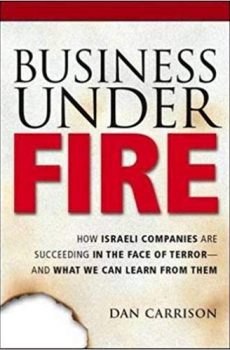
Business Under Fire
1,690.00₹ 1,490.00₹
Israeli businesses face a unique and dramatic challenge-surviving and thriving despite four years of terrorist attacks against civilians Business Under Fire uses a mixture of analysis and in-depth personal interviews to show how Israeli companies stay profitable, offering realistic insights readers can apply to their own organisations operating in an uncertain environment. Based on fascinating, first-person interviews conducted by the author himself in Israel with CEOs, managers, and in-the-trenches employees-Carrison received unprecedented cooperation and access from the Israeli government and many companies in various industries for this project.
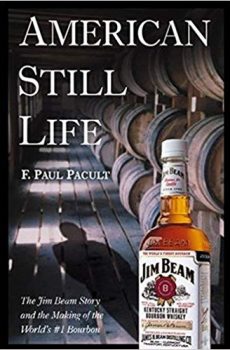
American Still Life
1,690.00₹ 1,090.00₹
American Still Life tells the intertwined truestories of America’s favorite whiskey and the family dynasty thatproduces it to this very day. Jim Beam is the world’s top-sellingbourbon whiskey, with sales of over five million cases per year.Not a day has passed in the 207 years of Jim Beam’s existence whena Beam family member has not been master distiller. Dedicated toquality, and dedicated to the family legacy, the Beams haveshepherded their particularly American spirit to the top of theirindustry. And they’ve done it in an industry beset by challenges,from government regulation and prohibition, to changing consumertastes, to fierce new global competition. By creating a brand ofunparalleled quality and consistency, and by tying the success oftheir product with the good name of the family, the Beams haveestablished a lasting legacy as perhaps one of the greatest familybusiness dynasties in American history. Not just a simple historyof “America’s native spirit” (so named by an act of Congress in1964) or a simple family history, American Still Life is a story ofbusiness success based on quality and attention to detail, constantinnovation, revolutionary branding and advertising, and adaptationto the business environment.
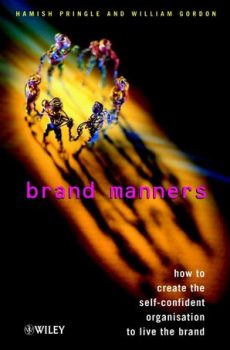
Brand Manners
5,900.00₹ 1,090.00₹
How often has a company’s handling of a customer’s telephone call turned out to be a turn-off? How often has a customer query in the retail environment turned into a relationship-killer, rather than a loyalty-builder? No matter how good the work behind brand positioning and communication, a reputation can be ruined by one poor interaction with a customer. The challenge for any brand-focused company is to ensure that the whole organisation actually ‘lives’ the brand. New in paperback, Brand Manners is the runaway bestseller that demonstrates why a company needs, and how it can create, a branded service culture that consistently exceeds customer expectations. Drawing on a host of major case studies, Hamish Pringle and William Gordon show how any company can align its internal and external brand values to build a ‘self-confident’ organisation.
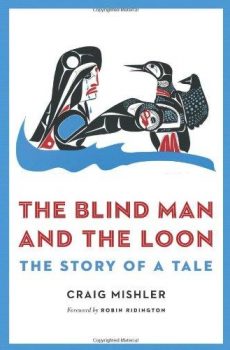
The Blind Man and the Loon
3,490.00₹ 2,395.00₹
The story of the Blind Man and the Loon is a living Native folktale about a blind man who is betrayed by his mother or wife but whose vision is magically restored by a kind loon. Variations of this tale are told by Native storytellers all across Alaska, arctic Canada, Greenland, the Northwest Coast, and even into the Great Basin and the Great Plains. As the story has traveled through cultures and ecosystems over many centuries, individual storytellers have added cultural and local ecological details to the tale, creating countless variations.
In The Blind Man and the Loon: The Story of a Tale, folklorist Craig Mishler goes back to 1827, tracing the story’s emergence across Greenland and North America in manuscripts, books, and in the visual arts and other media such as film, music, and dance theater. Examining and comparing the story’s variants and permutations across cultures in detail, Mishler brings the individual storyteller into his analysis of how the tale changed over time, considering how storytellers and the oral tradition function within various societies. Two maps unequivocally demonstrate the routes the story has traveled. The result is a masterful compilation and analysis of Native oral traditions that sheds light on how folktales spread and are adapted by widely diverse cultures.

Standing Firmly by the Flag
1,995.00₹ 1,395.00₹
From a pool of barely nine thousand men of military age, Nebraska—still a territory at the time—sent more than three thousand soldiers to the Civil War. They fought and died for the Union cause, were wounded, taken prisoner, and in some cases deserted. But Nebraska’s military contribution is only one part of the more complex and interesting story that James E. Potter tells in Standing Firmly by the Flag, the first book to fully explore Nebraska’s involvement in the Civil War and the war’s involvement in Nebraska’s evolution from territory to thirty-seventh state on March 1, 1867.
Although distant from the major battlefronts and seats of the warring governments, Nebraskans were aware of the war’s issues and subject to its consequences. National debates about the origins of the rebellion, the policies pursued to quell it, and what kind of nation should emerge once it was over echoed throughout Nebraska. Potter explores the war’s impact on Nebraskans and shows how, when Nebraska Territory sought admission to the Union at war’s end, it was caught up in political struggles over Reconstruction, the fate of the freed slaves, and the relationship between the states and the federal government.

Lasers and Lights
12,090.00₹ 8,990.00₹
This title in the PROCEDURES IN COSMETIC DERMATOLOGY SERIES presents up-to-the-minute, practical guidance on the laser and light treatments shaping today’s practice. Succinctly written and lavishly illustrated, it focuses on procedural how-to’s and offer step-by-step advice on proper techniques, pitfalls, and tricks of the trade-so you can refine and hone your skills…and expand your surgical repertoire. You’ll find current, to-the-point guidance on the cosmetic use of lasers and lights-edited by a pioneer in the field, Dr. David Goldberg. Implement the newest procedures into your practice immediately and confidently-with the outstanding guidance you’ll find in this volume of the PROCEDURES IN COSMETIC DERMATOLOGY SERIES.

Test Ride on the Sunnyland Bus
1,390.00₹ 1,090.00₹
Test Ride on the Sunnyland Bus chronicles the story of an American family against the backdrop of one of the civil rights movement’s lesser-known stories. In January 1957, Joseph Spagna and five other young men waited to board a city bus called the Sunnyland in Tallahassee, Florida. Their plan was simple but dangerous: ride the bus together—three blacks and three whites—get arrested, and take their case to the U.S. Supreme Court. Fifty years later Ana Maria Spagna sets off on a journey to understand what happened and why.
Spagna travels from her remote mountain home in the Pacific Northwest to contemporary Tallahassee, searching for the truth of the incident and her father’s involvement. Her journey is complicated by the fact that her father never spoke of the Sunnyland experience and died unexpectedly when she was eleven. Seeking out the other bus riders, now in their seventies, Spagna tries to make sense of their conflicting stories. Her odyssey becomes further troubled by the sudden diagnosis of her mother’s terminal cancer.
Winner of the River Teeth Literary Nonfiction prize, Test Ride on the Sunnyland Bus deftly weaves cultural and personal history, memoir, and reportage in this fascinating look at a family and a nation’s past.
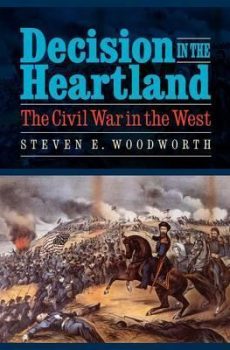
Decision in the Heartland
1,290.00₹ 1,090.00₹
The verdict is in: the Civil War was won in the West, that is, in the nation’s heartland, between the Appalachian Mountains and the Mississippi River. Contrary to much popular literature, serious scholars have determined in one careful study after another the pivotal importance of what was, at the time of the Civil War, the western United States. In this fast-paced overview, Steven E. Woodworth presents his case for the decisiveness of that theater.
Overwhelming evidence now indicates that western campaigns cost the Confederacy vast territories, the manufacturing center of Nashville, the financial center of New Orleans, communications hubs such as Corinth, Chattanooga, and Atlanta, along with the agricultural produce of the breadbasket of the Confederacy. They sapped the morale of Confederates and buoyed the spirits of Unionists, ultimately sealing the Northern electorate’s decision to return Lincoln to the presidency for a second term and to see the war through to final victory. Detailing the “western” clashes (Fort Donelson, Shiloh, Chattanooga, and Atlanta) that proved so significant, Woodworth contends that it was there alone that the Civil War could be-and was-decided

Shopping at Giant Foods
1,820.00₹ 1,295.00₹
From the 1930s through the 1970s, Chinese American owned supermarkets located outside of Chinatown, catering to a non-Chinese clientele, and featuring mainstream American foods and other products and services rose to prominence and phenomenal success in Northern California, only to decline as union regulations and competition from national chains made their operation unprofitable. Alfred Yee’s study of this trajectory is an insider’s view of a fascinating era in Asian American immigration and entrepreneurship. Drawing on oral interviews with individuals who worked in the business during its peak and decline, he presents an accessible history that illustrates how this once-thriving business fostered the social and economic integration of Chinese Americans into life in the United States.
Yee demonstrates how Chinese American supermarkets were able to sell American groceries at reduced prices by using the cheap labor of family members and Chinese immigrants whose entry to the United States had been sponsored by their employers. This type of symbiotic relationship was eventually undermined by labor unions’ demands that employees be covered by labor laws and fully compensated for all hours worked. Also contributing to the ultimate demise of Chinese American supermarkets were increasing costs of capitalization and operation, the dominance of national chain stores, and difficulties arising from traditional Chinese methods of business management.

